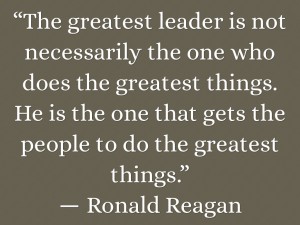System Overload
 Yesterday we had a representative from our teacher’s union visit our school. It’s enterprise bargaining time again and she was visiting to let us know how the process was going. One of the issues the union is addressing in this round of discussions is the problem of excessive work load. This is a real problem. It’s nine o’clock on a Friday night and I’ve just finished working. Twice this week I’ve told my daughter I couldn’t listen to her read because I had work to do. I’ve been at work by 7:30 every morning and not out the door at the end of the day until after five. Most nights there is ‘homework’ for me that means I’m not helping my kids with their’s. I’d like to say this is unusual, but it’s a fairly normal week. I think this is true for many of us. I’m not sure how the union thinks that they can change this, but I wish them luck!
Yesterday we had a representative from our teacher’s union visit our school. It’s enterprise bargaining time again and she was visiting to let us know how the process was going. One of the issues the union is addressing in this round of discussions is the problem of excessive work load. This is a real problem. It’s nine o’clock on a Friday night and I’ve just finished working. Twice this week I’ve told my daughter I couldn’t listen to her read because I had work to do. I’ve been at work by 7:30 every morning and not out the door at the end of the day until after five. Most nights there is ‘homework’ for me that means I’m not helping my kids with their’s. I’d like to say this is unusual, but it’s a fairly normal week. I think this is true for many of us. I’m not sure how the union thinks that they can change this, but I wish them luck!
I’m not complaining (well maybe I am a little bit). This is the job I chose and I wouldn’t choose to do anything else. I don’t know that anything can be done about it. As a leader in a school, the work is there and it needs to be done. I think what we can do a better job of as leaders is making sure that we don’t overload our teachers.
Planning and managing a strong learning environment takes a lot of time and energy. Our teachers work hard. Throw in committees, parent meetings, professional development, report writing, staff meetings, yard duty and it can start feeling like good classroom practice come second to the ‘stuff’.
As leaders, I think we need to try and give our teachers a break. I’m not saying we can take away all the ‘stuff’, but shaving 5 mins off the occasional staff meeting instead of running 5 mins over can make a big difference to people’s headsets. Being aware that pushing forward with our work as leaders can have an effect on teachers workloads in essential. It’s not an easy balance to find. We certainly aren’t the only profession that has a tough workload and I know there’s not an easy fix. The push of ‘getting through everything’ means that it’s hard to justify these mini breaks, but I believe that the pros outweigh the cons.
We are in a profession where we need to be more aware of each other. Releasing the pressure valve occasionally is good for everyone. When people feel less stressed they are more aware of each other and provide a good support network for work mates. This is important. Covering the yard duty of a colleague who’s had three extra meetings this week, might be the thing that helps prevent their whole week going to the pack. This is better for teachers, it’s better for leaders and most importantly it’s better for students and classroom learning.
It’s a hard act to pull off, but we’ll keep trying.




Recent Comments